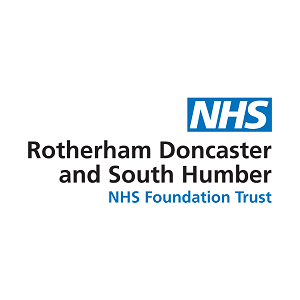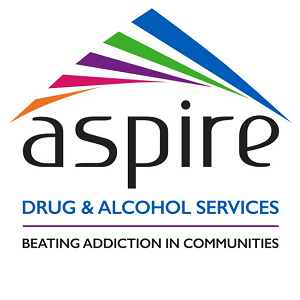Drug & Alcohol Rehab in Doncaster

How Does Rehab Work?
Rehab involves multiple strategies that are created to deal with individual addiction with support, wellness methods, and steps to restore good mental health. Clients are introduced to life-changing, supportive, and therapeutic programmes that are led by experienced and professional therapists. Along with individual therapeutic intervention, individuals can benefit from the support received from group sessions. Addictions are treated through a residential or an outpatient programme. If you enter an inpatient rehab programme, the programme requires that you remain inside the centre or the facility for the duration of treatment. Outpatient services are an option for those with less severe dependencies and will meet with a counsellor weekly while attending work commitments and staying at home.
What Happens During Residential Rehab?
Taking the brave step towards recovery starts with rehabilitation. It is a process, and it takes time but with dedication and support relapse can be prevented. If you’re unsure about what rehab entails, we provide a breakdown of what to expect.
Rehabilitation from addiction starts with a professional medical evaluation. This evaluation or assessment helps the professional decide which treatment option is most suited to your circumstances. Therapy differs from one person to the next depending on the history of drug or alcohol use and the presence of comorbidities (such as depression).
Assessments are followed by detox. Individuals who enter detox will begin withdrawing from substances including alcohol, as the body returns to a normal state of function. This timeline will differ depending on the type of drug used and the length of dependency. Only when the body no longer contains traces of the substance will individuals participate in a treatment plan.
While attending rehab patients will receive therapy. Therapy can be provided on an inpatient or outpatient programme. Therapy consists of individual counselling including Cognitive Behavioural Therapy, skill-building and group sessions.
1. Assessment

Before treatment can be delivered, a medical assessment is provided. This involves an in-depth look at individual medical history, drug or alcohol use, and the presence of mental health issues. Clients can be accommodated with an assessment by phone. The admissions staff team will be responsible for the telephone assessment to decide on the best form of therapy. Along with determining a treatment plan, the admissions team or medical staff will have reliable information to facilitate the detoxification.
Should you require the assistance of a medical expert to manage addiction, seek a medical assessment prior to treatment commencing. Assessments are an important part of choosing the right therapy and whether inpatient or outpatient programmes are most suitable for your healthcare needs.
2. Detox

Detox involves the cessation of drugs and alcohol from the body. With professional care, it is safely facilitated and is most commonly monitored in a private rehab because of risks associated with withdrawal symptoms.
Medical detox is often recommended because it helps medical staff to oversee withdrawal symptoms. Withdrawal from substances can be uncomfortable and relapse may occur if not managed within a treatment centre facility. Medically assisted detox can ease the process of withdrawal by supporting clients and providing detox medication to limit uncomfortable symptoms. During an individual assessment, a professional will determine which approach is best suited to a comfortable detox and entry into treatment thereafter.
3. Therapy

Once a medical assessment and detox are finished, individuals will begin therapy. Therapeutic intervention may consist of inpatient or outpatient programmes depending on the your finances and life commitments. Some of the most common therapies you can expect at a treatment centre include traditional one-on-one therapy, trauma counselling and skill development, and group therapy sessions.
Step by Step Process for Residential Rehab
To understand your medical and mental health history.
Arrange a suitable date to begin your journey to recovery.
Begin the managed withdrawal process from substances including alcohol.
To understand the root cause of addiction and how to overcome it.
Aftercare is provided to help manage the risk of relapse.
To help heal the wounds that addictive behaviour has caused others.
Find your Nearest Rehab Centre in Doncaster
The nearest rehab centre is Linwood House – Drug Rehab & Alcohol Rehab South Yorkshire.
Address: Linwood House – Drug Rehab & Alcohol Rehab South Yorkshire, Wensley Rd, Barnsley S71 1TJ
Call 0333 4444 432 to discuss your alcohol or drug rehab requirements and any other questions you may have about the process of residential rehab.
Outpatient Addiction Services in Doncaster
When you look for a treatment programme, it will be influenced by the nature of the addiction and your budget requirements. Individuals who enter an inpatient or outpatient programme will need to give their full commitment to get the most out of treatment. Let’s determine the strengths and weaknesses of outpatient services compared to residential rehab.
When you are accepted into an outpatient service, you will be expected to meet with a therapist, support counsellor, or group leader once or twice every week. Rather than stay at the residence, you can continue to attend work and care for your family while you receive addiction treatment for dependence.
Private Outpatient services include therapy with counselling sessions provided by a therapist/counsellor. Sessions can last between 60 and 90 minutes. Free addiction treatment does exist via one of the many reputable charities in the UK (Turning Point), but it does not provide the same individualised care that private services provide.
The Benefits of Outpatient Services
Private Outpatient practices focus on individual support that is customised to suit the needs of every patient. – Outpatient treatment is a more flexible arrangement that can help many individuals regardless of financial or personal commitments. It includes the attendance of weekly sessions that are delivered by a qualified therapist. – It is a more cost-effective treatment programme in comparison to residential addiction treatment.
The Challenges of Outpatient Services
While one remains at home and partake in outpatient programmes, they may be at higher risk of relapse due to being exposed to triggers and easy access to substances. Another point to consider is that free outpatient addiction services – offered by the NHS and other UK-based charities – do not provide a bespoke treatment plan and waiting lists are to be expected.

How Much Does Rehab Services Cost in Doncaster?
Drug and alcohol addiction treatment within a residential setting can cost between £1500- £4000 per week. When private addiction treatment is not an option, our goal is to help you find the right recovery programme that suits your budget requirements.
The NHS and charities such as Turning Point offer free rehab services for those struggling with drug and alcohol addiction. It is worth noting that Turning Point requires a self-referral to access treatment. You will also find free support groups offered by Alcoholics Anonymous, Cocaine Anonymous, and Narcotics Anonymous very important for long-term recovery from addiction.
Support Groups in Doncaster

Doncaster Living Sober
Sober Social, 18 Priory Place DN1 1BZ

Doncaster Daytime Beginners
Sober Social, 18 Priory Place DN1 1BZ

Doncaster Step & Tradition Online
Rosslyn House, 41 Thorne Rd DN1 2EZ
The Pros and Cons of Seeking Treatment in Your Local Area
Pros
1. You are familiar with the area which may provide a layer of comfort/safety.
2. Loved ones can easily travel to visit or are close by.
3. You could save on the costs of travelling long distances for treatment, or free addiction services may only be offered in your area of residency.
Cons
1. A local environment means access to drug dealers or other triggers. This is more of an issue if you decide upon outpatient programmes.
2. Failing to consider locations outside your local area could result in missed opportunity for more valuable and rewarding programmes.
3. Addiction treatment services that are nearby do not always offer the best standard of rehab.
If you are unsure of how to look for a rehab service you can trust, consider the CQC. The CQC website offers listings of rehabilitation services and organisations that are ranked according to the standard of its services.


